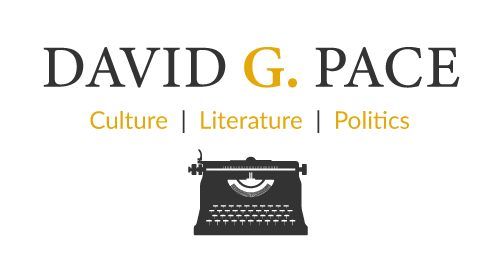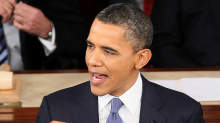
I was out shoveling snow yesterday evening after 6 hours at the ER where I learned that I have three kidney stones. Whenever I get sick, it is an existential experience for me. Not only do I nurse my “wounds” and my feelings of woe, but I begin to entertain serious self doubt about many things: my belief system, my lack-of-beliefs, my competence at work, my competence as a husband and a father, a son and a sibling. I begin to wonder if I really am just a piece of shit, not worth the love of others and the space I take up on earth.
Like I say. It’s an existential experience.
Even so, I was feeling relieved to know why I have been having these episodic attacks over the last four days, and grateful, as I headed over to the store to pick up my prescriptions.
The sun was coming out, in its descendant arc into the West, and I decided to walk. That’s when I started to think about what the State of the Union Address might mean to me, especially this year so soon after the Tuscon shootings which killed six people at a public political gathering and seriously wounded Congresswoman “Gabby” Giffords and others.
It also made me think not only about the state of the union but the state of our lives. Americans, spurred by talk show hosts, decry the way we live now–everything from the disintegration of families to the abandonment of civility; and from the collapse of the economy as we have known it to the end of the world. But I don’t hear many talking about how we are each implicated by our current condition, how we have contributed and continue to contribute to the general sense of malaise that so many of us feel. My contention is that if we did, we would not only experience an upsurge of optimism but we would start to talk to ourselves and then to one another about how we can improve the situation.
That’s the overarching value, in my opinion, of Obama’s speech which, for the first time, I listened to on C-Span, instead of on the commercial and even public networks where commentary abounds. Though an “explainer speech” for the most part, the address was conciliatory and frank. It approached the joint session of Congress with the underlying premise that we are all Americans and that we are a part of the solution. It was much less defensive, but also less rhetorically soaring than last year’s. And, I think it was just what the doctor ordered.
Already, pundits and journalists are talking about how Obama’s ledger–of expenses vs. new sources of revenue don’t add up. And they are probably right in many ways. But, again, that wasn’t the value of the speech for me. By now I know that the opposition party will derail everything the party in power does on principle. Keeping the conversation above the wrangling particulars, Obama tried to set new game rules: we have to work together tomorrow not just “sit together today”; we are all honorable women and men with a deep love for the country; we have to dream big before we can “do big things.”
This last point was illustrated by the U.S. response to the Russians launching Sputnik, becoming the first of the two super powers to enter outer space. The U.S. announced that we would go to the moon. “The science wasn’t there yet,” Obama reminded us last night, but it became a dream that bound us together as a nation. It acted as a culvert to draw our energies together and propel them forward to do that big thing.
It wouldn’t have been a state of the union speech if it didn’t raise more questions than answers, and if it didn’t have its moments to give one pause. I still don’t understand the terminology or truth about corporate taxes. Isn’t it true that some of them pay no taxes at all? But then yesterday Obama said we had one of the highest corporate tax rates in the world. And how will the new health care overhaul really help pay down the deficit when Congress has pretty clearly been unwilling to even entertain making the deep, unpopular cuts to Medicare that the law presumes?
Still, the speech was a success and was truly inspiring to me. In my view Obama wasn’t there to say how we were going to accomplish these goals, these dreams. Considering the divisive state of the union–one that he ruefully acknowledged last night–how could anyone declaim definitively how we are going to get to the moon? Lord knows, as I’ve said above, the Republicans are going to challenge and cavort over everything just as they did during the last two years from the START treaty to the Dream Act–the first of which passed, and the second of whcih, shamefully, did not. It is out of the joint conversation between the two parties that the particular tactics will emerge. Obama knows that. I think we all better figure that out ourselves. But the dreaming and the clear identification of goals has to happen now, with our president at the lead and in conversation with Congress.
Most of all, however, what has to happen in the state of our lives is that each of us must assume commonality with our worthy opponents–whoever they may be: the other party, the other sex, the other religion, the other “team.” That is what Obama did for me last night. He helped me see how the new Speaker of the House was an admirable man, as honorable as the Vice President whom Obama also called out. He helped me see that forming and sustaining the right state of a generous and hopeful mind will lead to a state of the union and a state of our American lives that we are proud of.
This brings me back to civility in public discourse which is the imperative product of relentlessly looking for the commonality in each of us. If I don’t rise to this call to build bridges with others, to turn off the television talk show hosts screaming the end of the world and wild conspiracies galore, to reassure my 17 year old that the world isn’t “coming to an end” but is simply reinventing itself and that he might get to play a critical part in how that is shaped…then I am a part of the problem.
Shortly after the Tuscon shootings, a colleague of mine sent out an email to all of us at work. L. Jackson Newell is a man I greatly admire. He recalled to us that he had been shoveling snow, just as I was yesterday, and thinking about the state of our lives when he threw his shovel down in the snow and went inside to contact someone who he felt estranged and divided from.
Jack has given me permission to reprint what he wrote to us here:
Will you?

